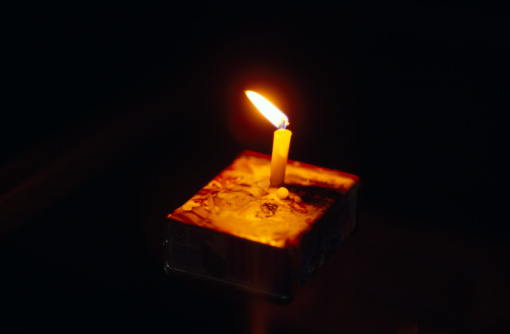Will there ever be a time when electricity supply in this country will be regular, stable and reliable? That should be the day when we can thump our chests and say we have arrived. But that day is so far away, I feel I will not live to see it.
After the electricity crisis of about two years ago, I hoped that we will only use the phrase “load shedding” in history books to tell the incredulous tales of how we survived the drying up of the Akosombo Dam. In those days, whenever it was my turn to sleep in the dark I would spend the night in my car with the air conditioner on. If I dared open my windows to my room, mosquitoes would feast on me and for their “thank you”, deposit millions of malaria-causing plasmodium in my bloodstream. Those times were as rough as they were tough, not just for individuals but for companies as well. I really hoped that we would never see those days again.
But in Ghana, hoping is often a futile endeavour. Against all hopes, we are told there is going to be another “load shedding” starting in the next few days. That phrase I wished would only be used in history books is very much in use in policy documents at the Volta River Authority (the electricity producer), the Ghana Grid Company (responsible for transmission) and the Electricity Company of Ghana (the main distributor).
I really don’t understand why we need three different companies to get us the electricity we need but I suppose it makes sense to someone somewhere. But my point is that the three companies are telling us that for the next eight weeks (at least) there will be a load shedding programme in Accra. They say that a certain transformer has broken down and it will take them the best part of two months to fix it and throughout that period we have no choice than to endure the agony and distress of yet another bout of “load shedding”.
It’s not going to be easy for most of inhabitants of the national capital.
Armed robbers are going to increase their productivity to levels that we will all love to the see the ECG and VRA emulate. In times of load shedding people just love to keep their windows and doors open and when this happens, it is not only fresh air that they will be letting into their rooms. Robbers will take advantage of the situation to let themselves in and it will be hard for anyone to turn them away for gate crashing.
Since load shedding schedules are published in the newspapers, these are the only times you see armed robbers plan and execute their operations with remarkable success – they know when to strike and where.
With the load shedding real economic productivity will take a serious dip. Businesses are going to spend more money on generator sets and on fuel to keep them running. In these times of economic hardship all sensible business executives are looking for ways of reducing cost but thanks to load shedding, costs will go higher than desired.
Small-scale businesses which cannot afford generators will suffer even more. The only businesses to benefit from these dark days will be those which sell generators, candles and rechargeable lamps. Since we don’t produce any of these things here, much of the profit to be made will go to companies in places like China.
One of the most annoying features of a load shedding period is that when darkness falls, it’s much easier to separate the wealthy from the well-off and the well-off from the poverty-stricken. In my Labone neighbourhood, for example, everyone is going to know that I am one of the poorest in the community because whiles all other houses will be humming with the sounds of the generator sets mine will be quiet and dark.
Even amongst the generator-owning class, you can easily tell the wealthy from those who are merely pretending to be well-off. The wealthy have powerful, generators (which need equally powerful forklifts to be moved around) whiles the pretenders have small generator sets which can easily be carried from one end of the house to the other. Armed robbers tend to carry away the generator sets of the pretenders – just to ‘hughsify’ the loot (i.e. make the loot complete).
I have also been told that load shedding periods put a lot of strain on marriages. Men, especially, tend to look out for concubines in other parts of town, so that when they have no electricity at home, in say, Adenta, they can spend the night with the concubine in, say, Dansoman, where there is power. Who wants to lay besides a sweaty, restless spouse in the dark?
So, really, load shedding only benefits mosquitoes, the Chinese and armed robbers. Our electricity producers and suppliers are very much aware of this fact and I am baffled as to why they cannot resolve in their hearts (and strategic plans) to make sure that power is never in short supply in this country.
Some human beings with brains like ours (well, almost) have achieved this to the extent that when there is a blackout, their citizens become shell-shocked and traumatised. Blackouts are so odd elsewhere but here in Ghana they are such a regular occurrence that when we go for long periods without power going off, we begin to wonder if everything is alright.
What’s the difference between us (the powerless) and them (the powerful)? I know. But I won’t say it. If I did, you’d call me a blasphemous racist. But as you lay in the dark, sweaty and unable to sleep just think about why we can’t produce enough energy – not just in this country but in much of Africa. If you are honest with yourself, you might weep.


